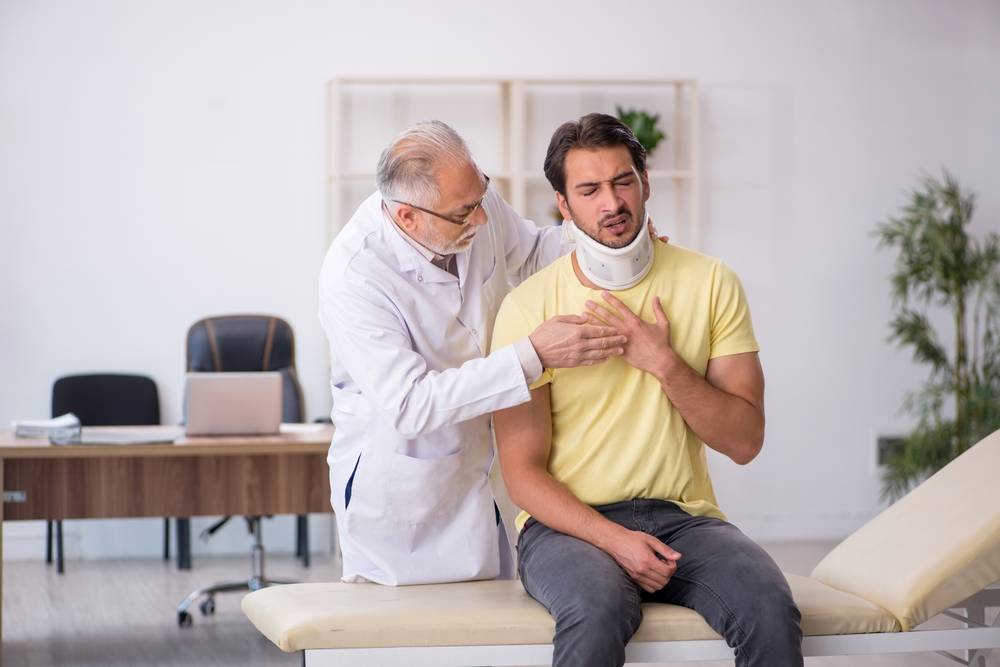 Every year, millions of people around the world are involved in auto accidents, which, unfortunately, can result in a range of common injuries. From whiplash and soft tissue damage to fractures and concussions, these injuries can have a significant impact on your health and well-being. In the aftermath of an auto accident, seeking prompt and appropriate medical treatment is crucial for ensuring optimal recovery and preventing long-term complications. Let’s explore the various auto accident treatment options available for the most common car accident injuries.
Every year, millions of people around the world are involved in auto accidents, which, unfortunately, can result in a range of common injuries. From whiplash and soft tissue damage to fractures and concussions, these injuries can have a significant impact on your health and well-being. In the aftermath of an auto accident, seeking prompt and appropriate medical treatment is crucial for ensuring optimal recovery and preventing long-term complications. Let’s explore the various auto accident treatment options available for the most common car accident injuries.
5 Common Auto Accident Injuries
Here are five of the most common auto accident injuries.
Whiplash
Whiplash is one of the most common car accident injuries and occurs when the neck is forcefully jerked backward and then forward. Especially common in rear-end collisions, whiplash can cause neck pain, tenderness, and difficulty turning the head from side to side. Pain, tingling, and numbness may also radiate from the neck to the upper back, shoulders, and arms.
Muscle Strain
Muscle strain, also referred to as a pulled muscle, occurs when muscles are stretched or torn beyond their normal limits, often due to sudden or excessive force during a car accident. The abrupt impact of a collision can cause muscles to become overextended, leading to pain, stiffness, swelling, and decreased range of motion in the affected area. The most common areas for muscle strain in a car accident include the neck, back, shoulders, and chest.
Bruising
Bruising, also known as contusions, is a common injury sustained in auto accidents, typically resulting from the forceful impact of the collision. While bruises are often minor and heal on their own over time, they can sometimes indicate more serious underlying injuries, such as internal bleeding or damage to deeper tissues.
Broken Bone
Broken bones, also known as fractures, commonly occur in auto accidents. Areas like the arms, legs, ribs, and wrists are more susceptible to fracture due to the impact of the collision or from being thrown against hard surfaces within the vehicle. There are many types of broken bones, including hairline fractures that may be less obvious and fractures that cause disfiguration or limited mobility.
Concussion
A concussion is the most common type of TBI, or traumatic brain injury. Slamming the head into part of the vehicle or the sudden jostling from the collision can lead to a concussion. Even minor head injuries can have long-lasting effects, including headaches, dizziness, cognitive difficulties, and mood changes.
Signs & Symptoms of an Auto Accident Injury
After an auto accident, it’s crucial to pay attention to any signs or symptoms that could indicate an underlying injury that requires medical attention. Here are some common signs and symptoms to watch out for:
- Neck or Shoulder Pain: Persistent neck pain or stiffness, difficulty moving your neck, or pain that radiates to the shoulders could indicate whiplash or other soft tissue injuries.
- Headaches: New or worsening headaches, especially if accompanied by dizziness or nausea, could indicate a head injury such as a concussion.
- Back Pain: Pain in the back, especially in the lower back, could indicate muscle strains, spinal injuries, or herniated discs.
- Numbness or Tingling: Numbness, tingling, or weakness in the arms, hands, legs, or feet could indicate nerve damage or spinal cord injuries.
- Bruising or Swelling: Significant bruising, swelling, or tenderness around the abdomen, chest, or limbs could indicate internal injuries or fractures.
- Abdominal Pain or Tenderness: Pain or tenderness in the abdomen could indicate internal bleeding or organ damage, especially if it worsens over time or is accompanied by other symptoms like dizziness or fainting.
- Changes in Mental State: Confusion, disorientation, memory problems, mood changes, or difficulty concentrating could indicate a concussion or other traumatic brain injury.
- Vision or Hearing Changes: Blurred vision, ringing in the ears, or other changes in vision or hearing could indicate head or neck injuries.
If you experience any of these signs or symptoms after an auto accident, it’s important to seek medical attention promptly. Even if injuries seem minor at first, they could worsen over time if left untreated. A car accident doctor can evaluate your condition and ensure you receive the care you need to recover fully.
Auto Accident Injury Treatment
When you visit a doctor for an auto accident injury, you can expect a thorough evaluation of your condition to determine the extent of your injuries and the appropriate treatment plan. Here’s what to expect with auto accident injury treatment:
Medical History & Examination
Your car accident doctor will start by taking a detailed medical history, including information about the accident, any symptoms you’re experiencing, and any pre-existing medical conditions. They will then conduct a physical examination, paying particular attention to areas of pain, tenderness, swelling, and restricted movement. Depending on your symptoms and the doctor’s assessment, they may order diagnostic tests to further evaluate your injuries. Based on your medical history, physical examination, and diagnostic tests, the doctor will make a diagnosis of your injuries.
Auto Accident Treatment Options
Car accident injury treatment will depend on the type and severity of your injuries and may include:
- Pain Management: Medications such as over-the-counter pain relievers or prescription pain medications to manage pain and inflammation.
- Chiropractic Care: Noninvasive treatment to restore proper alignment in joints and improve healthy functioning in muscles and other soft tissues.
- Physical Therapy: Exercises and physical therapy techniques to improve strength, flexibility, and range of motion and to facilitate healing.
- Immobilization: Splints, braces, or casts to immobilize and protect injured limbs or joints while they heal.
- Injections: Corticosteroid injections or other types of injections to reduce inflammation and pain in specific areas.
- Surgery: In severe cases, surgery may be necessary to repair fractured bones, damaged soft tissues, or other injuries.
- Follow-Up Care: Depending on the nature of your injuries, you may require ongoing follow-up care to monitor your progress, adjust treatment as needed, and ensure that you are healing properly.
AICA Snellville for Auto Accident Treatment Near You
 Overall, the goal of treatment is to relieve pain, promote healing, and restore function so that you can recover fully from your injuries and return to your normal activities as soon as possible. Whether you are seeking whiplash treatment or managing more severe injuries like fractures or concussions, timely and comprehensive care can make all the difference in your recovery. If you are looking for auto accident injury treatment near me, don’t hesitate to reach out to AICA Orthopedics in Snellville. Our team of experienced car accident doctors includes Snellville chiropractors, physical therapists, and orthopedic surgeons who work together to help you heal.
Overall, the goal of treatment is to relieve pain, promote healing, and restore function so that you can recover fully from your injuries and return to your normal activities as soon as possible. Whether you are seeking whiplash treatment or managing more severe injuries like fractures or concussions, timely and comprehensive care can make all the difference in your recovery. If you are looking for auto accident injury treatment near me, don’t hesitate to reach out to AICA Orthopedics in Snellville. Our team of experienced car accident doctors includes Snellville chiropractors, physical therapists, and orthopedic surgeons who work together to help you heal.
